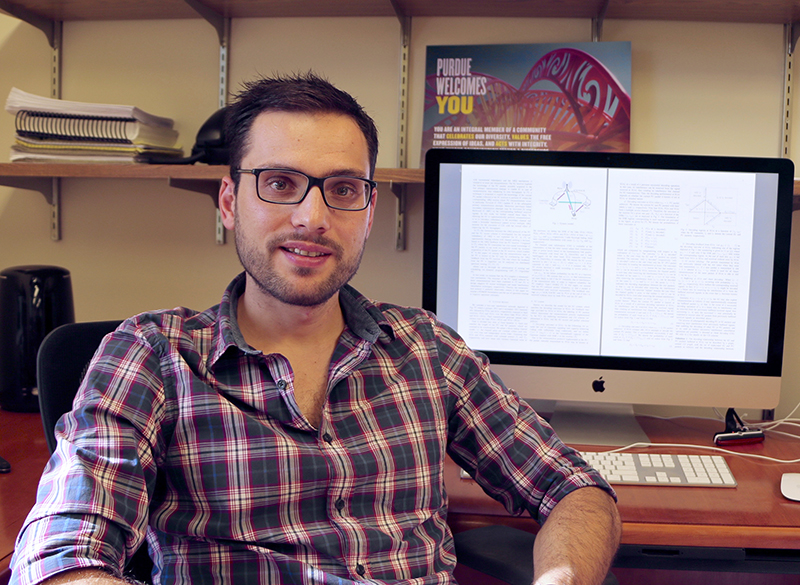October 11, 2016
Purdue part of NSF effort to improve wireless communications
 Nicolò Michelusi
Download image
Nicolò Michelusi
Download image
WEST LAFAYETTE, Ind. – Purdue University is part of a National Science Foundation effort to enhance the public's access to a radio spectrum that will become increasingly congested due to a proliferation of smartphones and the "internet of things," spurring greater demand for wireless broadband.
The demand could soon strain the capacity of radio frequency bands used for wireless communications, and the NSF announced today 11 three-year awards totaling $12 million focused on averting a crisis.
An emerging phenomenon that will necessitate greater wireless bandwidth is the "internet of things," said Nicolò Michelusi, an assistant professor in Purdue's School of Electrical and Computer Engineering.
"This has to do with everything having an internet address: your watch, your car, the washing machine. All of that is going to require more wireless bandwidth," he said.
At the same time fifth-generation, or 5G, mobile devices expected around 2019 will increase demand.
"Mobile data traffic is roughly doubling every year," Michelusi said. "The growth in mobile data traffic is accompanied by an increase in the number of communication devices, ranging from phones, tablets, laptops, smart watches and even smart shirts. The unprecedented mobility levels and massive traffic will be the two great challenges of 5G and beyond."
The Purdue portion of the research is funded with a $941,197 award and is led by Michelusi, who is working with co-principal investigators David Love and James Krogmeier, both professors in Purdue's School of Electrical and Computer Engineering. Their project, which begins this month, is titled "real-time control of dense, mobile, millimeter wave networks using a programmable architecture." A YouTube video is available at https://youtu.be/NBsDbaoHZHc.
The Purdue researchers are part of a Flexible and Efficient Spectrum Usage "preeminent team" established by the College of Engineering. The team and other preeminent teams were chosen because the work they do has the potential for dramatic impact and international preeminence.
Along with the Purdue portion of the new NSF-funded project is work led by Alexander Sprintson, an associate professor in the Department of Electrical and Computer Engineering at Texas A&M University; and Christopher R. Anderson, an associate professor in the Electrical and Computer Engineering Department at the U. S. Naval Academy. The funding for their parts is $246,626 and $132,011, respectively.
The NSF effort supports the Federal Communications Commission's National Broadband Plan and aligns with the recently announced Advanced Wireless Research Initiative, which seeks to sustain U.S. leadership in wireless communications and technology.
Writer: Emil Venere, 765-494-4709, venere@purdue.edu
Source: Nicolò Michelusi, 765-496-6040, michelus@purdue.edu
Note to Journalists: A YouTube video is available at https://youtu.be/NBsDbaoHZHc. It was prepared by Erin Easterling, College of Engineering digital producer, 765-496-3388, easterling@purdue.edu. The NSF news release is available at https://nsf.gov/news/news_summ.jsp?cntn_id=189863&org=NSF&from=news.

